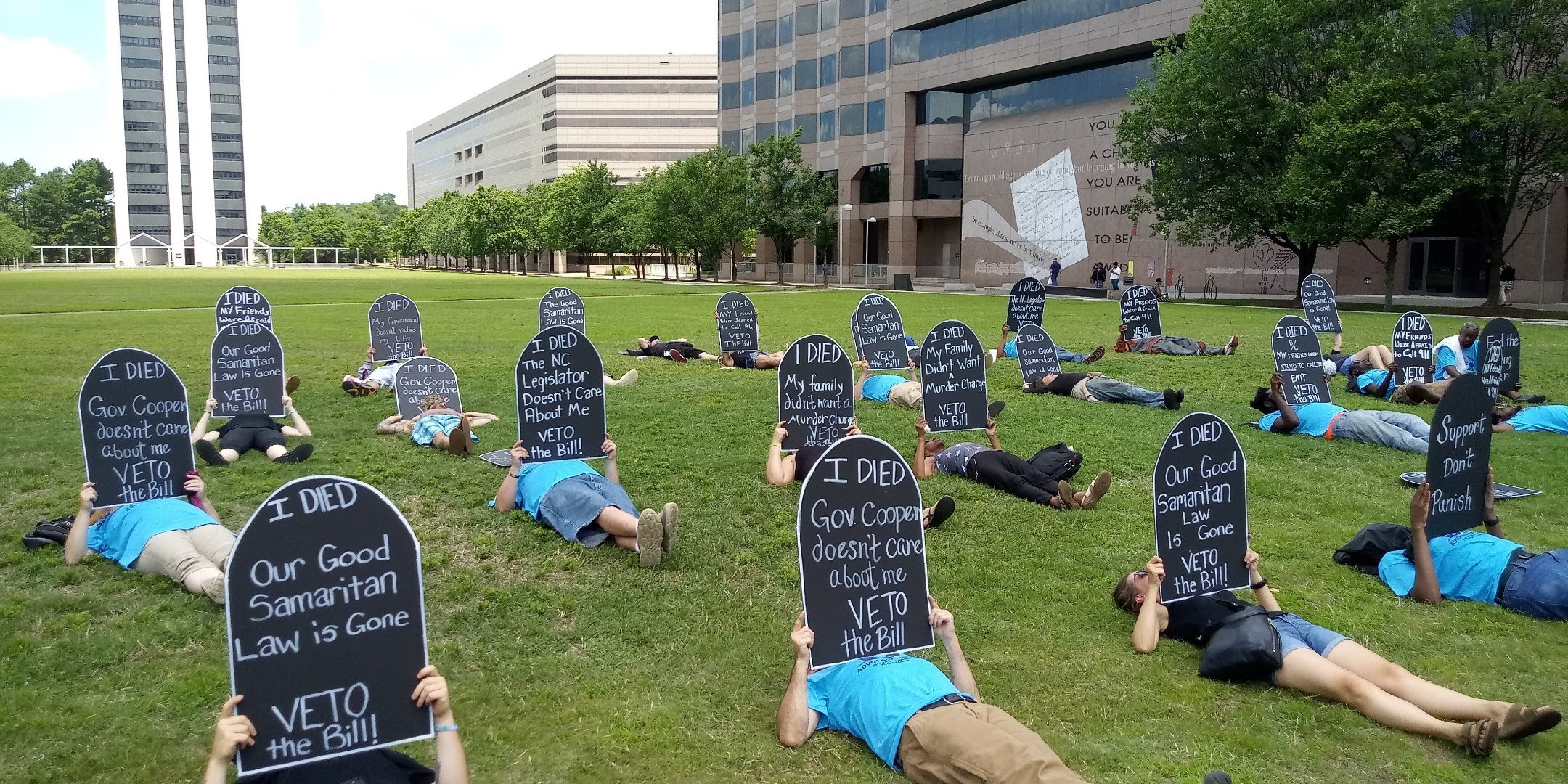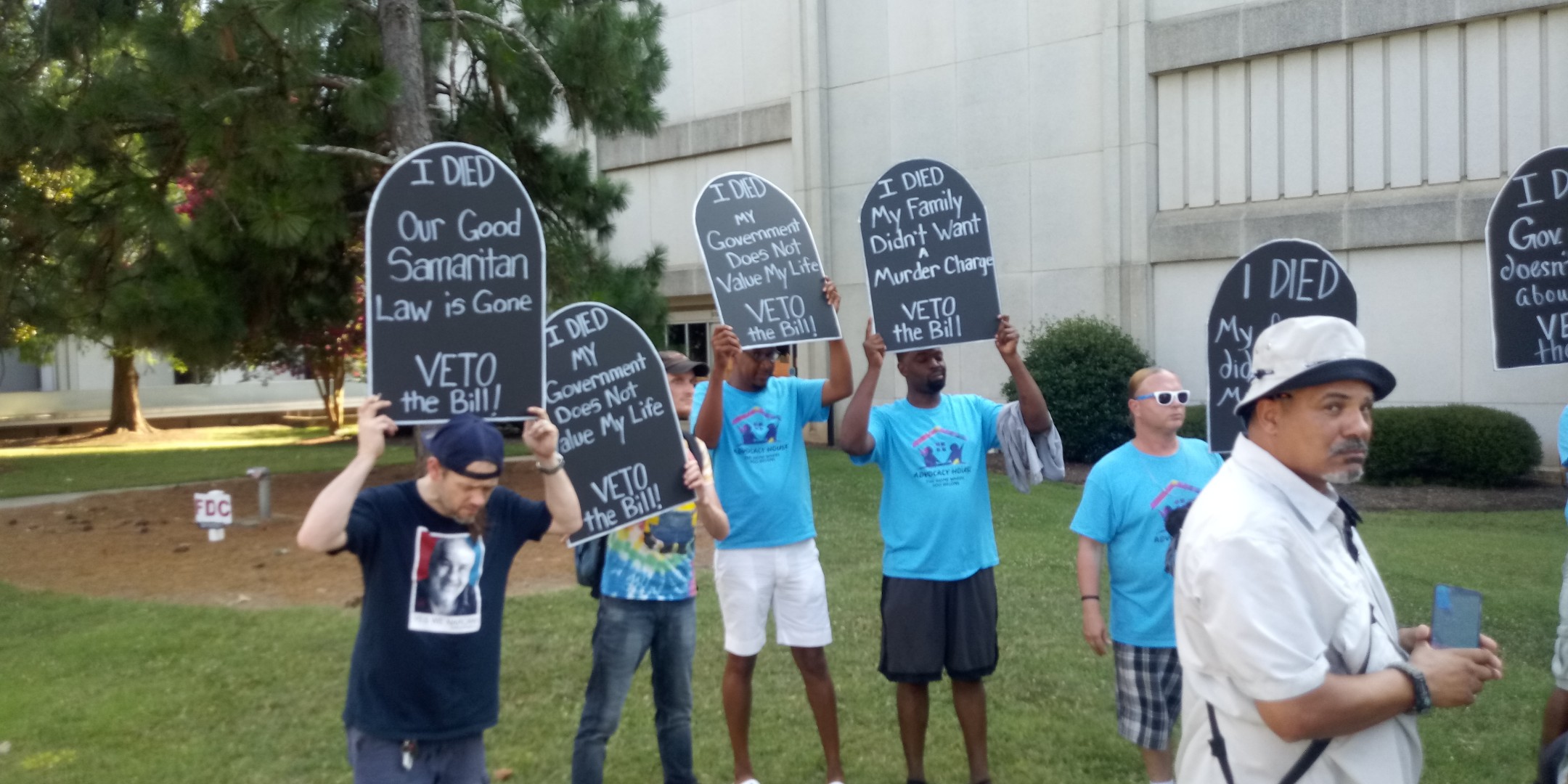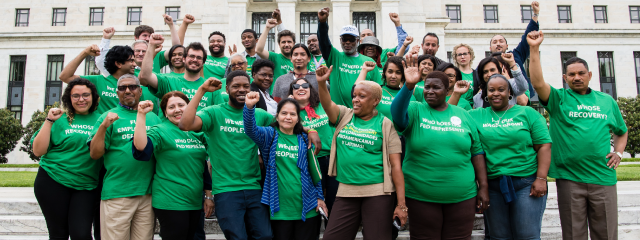On International Overdose Awareness Day, It’s Time to #ReframeTheBlame from People to Policy

Today is International Overdose Awareness Day. As we acknowledge the grief felt by families and friends remembering those who have died from a drug overdose, it’s also time to acknowledge and address the opioid epidemic as a public health issue, not a criminal justice problem.
 One such effort is #ReframetheBlame, a collaboration with Drug Policy Alliance and the Women’s Urgent Action Fund that seeks to combat drug-induced homicide laws that punish people selling drugs that lead to accidental overdoses. People sentenced under these laws often do as much time as those sentenced to manslaughter or murder. The harsh laws are aimed at deterring drug distribution, but as our partners at Drug Policy Alliance explain, “research consistently shows that neither increased arrests nor increased severity of criminal punishment for drug law violations result in less use (demand) or sales (supply). In other words, punitive sentences for drug offenses have no deterrent effect.” Instead, these policies are drawing more and more people into the criminal justice system for non-violent offenses, and brown and black communities are being disproportionately affected. #ReframetheBlame is a call to action to amend these practices.
One such effort is #ReframetheBlame, a collaboration with Drug Policy Alliance and the Women’s Urgent Action Fund that seeks to combat drug-induced homicide laws that punish people selling drugs that lead to accidental overdoses. People sentenced under these laws often do as much time as those sentenced to manslaughter or murder. The harsh laws are aimed at deterring drug distribution, but as our partners at Drug Policy Alliance explain, “research consistently shows that neither increased arrests nor increased severity of criminal punishment for drug law violations result in less use (demand) or sales (supply). In other words, punitive sentences for drug offenses have no deterrent effect.” Instead, these policies are drawing more and more people into the criminal justice system for non-violent offenses, and brown and black communities are being disproportionately affected. #ReframetheBlame is a call to action to amend these practices.
Our country’s overdose epidemic is exacerbated by our continuous failure to pioneer courageous policy that prioritizes life and health over punishment and retribution. We are fighting against the continued incarceration of nonviolent drug users and reactionary policies. We cannot incarcerate our way out of a public health crisis., We say no more to deadly drug policy which has never shown any effectiveness. We call for our leaders to act responsibly using science and proven policies.
 More people are going to die if we continue business as usual. We demand our government adopt drug policies based in science and grounded in harm reduction principles, not tough-on-crime policing. One such evidence-based approach to the opioid crisis is the Comprehensive Addiction Resources Emergency (CARE) Act. Introduced by Senator Warren and Congressman Cummings, the bill would invest $100 billion over the next ten years in prevention, treatment, and recovery, setting up planning councils at the local level comprised of people directly affected by the epidemic. Every Democratic Senator running for President has come out in support of the bill. Republicans in Congress should do the same. This is a bipartisan problem that needs bipartisan solutions, and the CARE Act is a necessary, common-sense approach to ending this crisis.
More people are going to die if we continue business as usual. We demand our government adopt drug policies based in science and grounded in harm reduction principles, not tough-on-crime policing. One such evidence-based approach to the opioid crisis is the Comprehensive Addiction Resources Emergency (CARE) Act. Introduced by Senator Warren and Congressman Cummings, the bill would invest $100 billion over the next ten years in prevention, treatment, and recovery, setting up planning councils at the local level comprised of people directly affected by the epidemic. Every Democratic Senator running for President has come out in support of the bill. Republicans in Congress should do the same. This is a bipartisan problem that needs bipartisan solutions, and the CARE Act is a necessary, common-sense approach to ending this crisis.
This International Overdose Awareness Day, let’s continue to destigmatize drug use, invest in harm reduction, and shift our focus from policing and incarceration to common-sense public health solutions.
---
Robert and Louise are members of the Urban Survivors Union, a national drug user union that provides strategies and technical assistance to organizations who are struggling to truly center the voices of the people most directly impacted by drug overdose. It is the only national union of drug users in the country.














